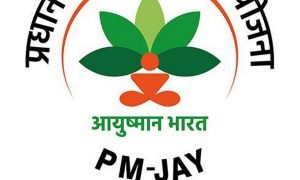Beginning April 1, it might take a little longer for your money to reach your fund house if you invest through a stockbroker or an online platform. This is due to a change in rules announced by the capital market regulator, the Securities and Exchange Board of India (SEBI), in a circular issued in October 2021.
SEBI had asked the mutual fund houses to ensure that no mutual fund distributor, online platform, stockbroker or investment advisor pools investors’ money in a bank account and then transfer it to the fund house for purchasing units of schemes for those investors. This is to ensure that the money does not get misused. The regulator asked the mutual fund industry to implement this from April 1, 2022.
This diktat called for big changes in the operations of mutual funds. Though the industry is nearing the deadline and all stakeholders are scrambling to put in place the new regime of money flow, investors may see some teething troubles.
Read More:-ITR Filing: How and when you can claim losses on delisted shares
Will your SIP go through?
For investors channellising their investments through systematic investment plans (SIPs), things are expected to be the same.
Most SIP investments are done by investors signing a one-time mandate. Though many of these existing mandates are in the name of the distributors, the fund houses have entered into an arrangement with payment aggregators and distributors to ensure that the money collected using such mandates will be directly credited to the bank accounts of the fund houses. Earlier, the money used to go via the bank accounts of the intermediary and then the intermediary would transfer such money to the bank account of the fund house.
“But all those SIPs will stop where stockbrokers are offering SIP facility through the investors’ funds kept with the stockbrokers,” said a senior official with a leading fund house who sought anonymity as the person is not allowed to speak with the media. The new system explicitly says no to pool accounts.
The money with which you fund the broking account is held in the bank account (which pools in funds of all clients) of the broker. If you have one such arrangement, then your broker may soon ask you to re-register for SIP mandates wherein you authorise the fund house or the clearing corporation of the stock exchange to debit money from your bank account and then transfer it directly to the bank account of the mutual fund.
New SIP mandates will be signed in the name of the fund house or in the name of the exchange’s clearing corporation, depending on the arrangements the intermediary uses.
What about lump-sum investments?
Though many retail investors prefer to invest through SIPs, there are investors who opt for one-time lump-sum investments. While most other aspects of investing in these schemes are expected to be the same, the movement of funds from your bank account to the mutual fund’s account needs to be direct. Therefore, your intermediary has to make specific arrangements with fund houses to receive payments made by you.
Earlier, investors use to write cheques or transfer funds using digital modes to intermediaries for such lump-sum investments. That was convenient as investors could write one cheque or one transfer for investments in more than one mutual fund scheme. Some distributors have entered into an ‘immediate credit facility’ on the bank level from the intermediary bank account to the bank account of the fund house, which used to work seamlessly.
These arrangements will now stop.
Do I need to re-register my lump-sum mandates?
Broadly, there are six ways in which you can invest in a mutual fund online; Real-Time Gross Settlement System (RTGS), National Electronic Funds Transfer (NEFT), Immediate Payment System (IMPS), net banking, Unified Payments Interface (UPI) and one-time mandate.
Initially, intermediaries will not allow you to invest lump-sum using RTGS, IMPS or NEFT payments to their bank accounts.
The mutual fund industry may take some time to put in place the systems in order to facilitate money flow directly to fund houses. Even cheque payments favouring intermediaries won’t be allowed. “We will be putting in place the arrangements for fund transfer using RTGS, IMPS and NEFT within a few weeks. A few investors use physical instruments such as cheque for subscription while transacting on MF Utilities, we are putting that facility on hold till we get a way out due to SEBI guidelines,” said Ganesh Ram, MD and CEO, MF Utilities -an industry-promoted platform for transacting in mutual funds.
Read More: Triumph Tiger Sport adventure motorcycle launched in India, priced at Rs 8.95 lakh
One-time purchases of mutual fund units funded using net banking, UPI and one-time mandates, however, will continue. Though investors may be making those transfers to the bank accounts of the intermediaries, the payment aggregators involved will ensure that the money does not go to the intermediaries and instead goes directly to the fund houses.
In the case of stock exchange platforms the money will reach fund houses via clearing corporations. “For payments made using internet banking and UPI to stockbrokers, the payment aggregators will ensure that the same are credited to the bank accounts of the clearing corporation of the stock exchange. The work is going on and should be live by April 1,” said Ajay Kejriwal, president, Choice Broking.
Investors need not panic, say most industry participants. “Your investments won’t stop if you have either the net banking facility or one-time mandate in place. You can also register a fresh one-time mandate using net banking facility in minutes,” said Jignesh Shah, founder of Mumbai-based Capital Advisors.
The thing you have to keep in mind is that when you are paying using net banking, UPI or one-time mandates, the fund transfer may take some time, unlike on a real-time basis as it used to be earlier. “We expect a lag of around an hour or two for such payments in the case of most payment aggregators as real-time credit system between the intermediary’s bank account and the mutual fund’s bank account will not be available. Investors should accordingly time their payments,” said the official quoted above.
Put simply, do not wait till there are only a few minutes to the cut-off time. Instead, make payments at least a couple of hours earlier. “In the worst possible case, the money will reach fund house after the cut-off time and you will get the next day’s net asset value. The industry will soon figure out ways to improve this as well,” the official added.
Trading in exchange-traded fundsIf you are an investor transacting in exchange-traded funds (ETFs), nothing changes for you. “Trading in units of an ETF is treated like trading in any other stock listed on the stock exchange,” said Kejriwal. You can fund your broking account and place an order for buying units of the ETF. If the order goes through, then the broker will credit the units bought on the stock exchange, following T+2 cycle. If you sell the units of the ETF on the stock exchange, the sale proceeds are credited to your ledger balance held with the stockbroker.





































